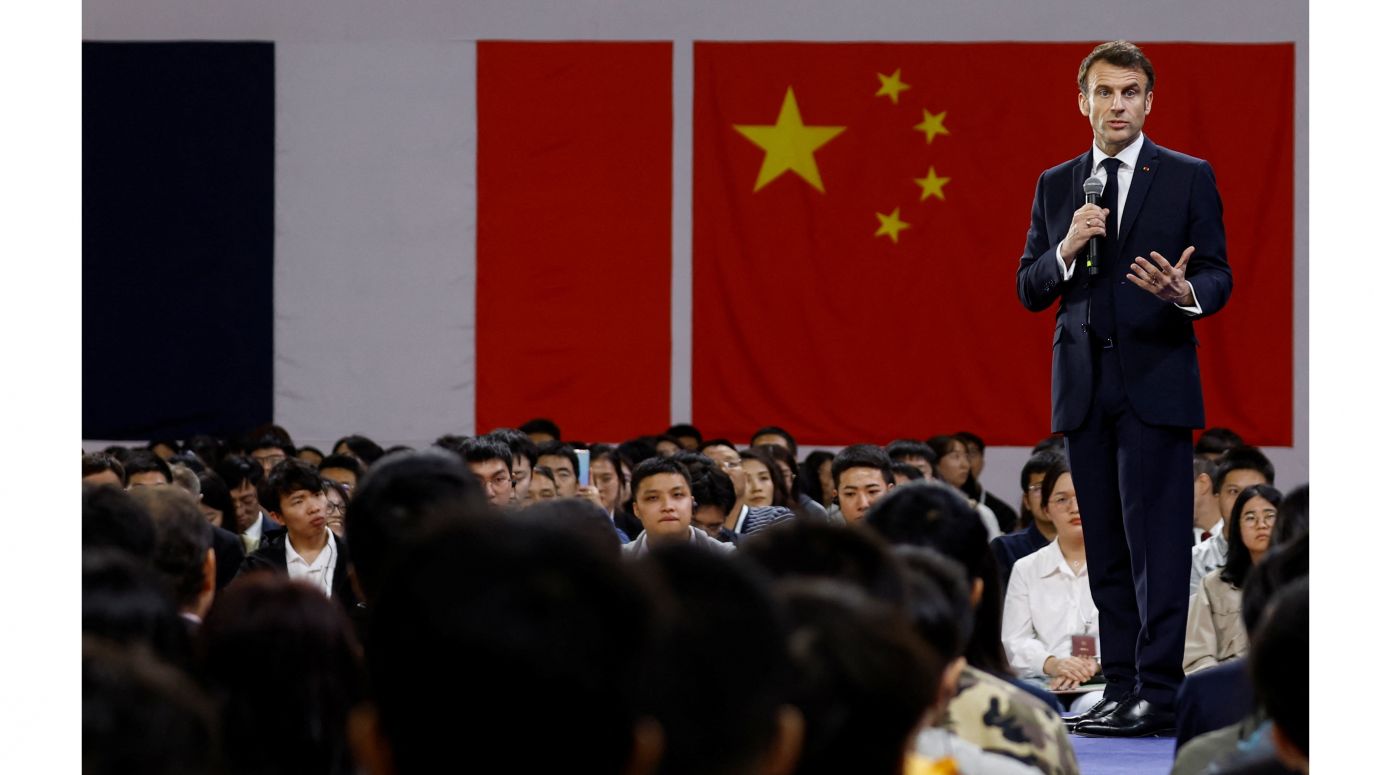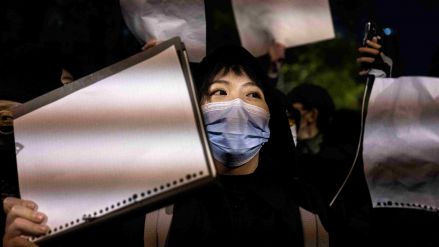None of these countries has initiated any serious initiative in terms of military aid to Kyiv. One could say that they are doing what is expected of them and participating in joint actions, but they are not willing to be seen as “instigators” like the Poles or Lithuanians. By the way, it is worth following the
list of aid, as it allows for a sober look at the propaganda exclamations of politicians who like to boast about naming military equipment, hoping that the audience has no idea what they are talking about.
But let’s return to the issue of the sense of security. Does Macron (and many other European politicians) have a point in thinking that if the conflict is limited to Taiwan, Europe will be able to adopt a distant attitude without fear for its fate? I don’t think so.
In January of this year, Michael Brown, former CEO of Symantec and former head of a special unit in the Pentagon dealing with the acquisition of new technologies, valued by both the Trump and Biden administrations, for whom he worked during their terms, published an article calling on US authorities to implement a weapons development plan and adopt an intense deterrence strategy towards China in connection with their intentions to conquer Taiwan. Brown described plainly what could happen if a war over Taiwan broke out. The costs of the war itself would, of course, be enormous, though not estimable beforehand.
 SIGN UP TO OUR PAGE
SIGN UP TO OUR PAGE 
However, the economic costs of halting production and trade of Taiwanese semiconductors would be catastrophic. For China, which produces 70% of the world’s electronic products, and for the West, which would fall into a prolonged economic depression without microchips. Similarly, the practical cessation of navigation in the Taiwan Strait and trade between China and the West would have catastrophic consequences. Shipping in the strait will have to resume at some point.
Among the side effects of a potential loss in the Taiwan conflict, Brown also mentioned the downfall of Xi Jinping and perhaps the end of the Chinese Communist Party. It is worth adding in passing that these two events in themselves might not be too worrying, but they would certainly mean destabilisation in this enormous country, and Americans generally fear destabilisation more than the rule of known autocrats.
It’s certain that regardless of the evaluation of all the consequences of such a war, one thing is for sure: the tragedy, although apparently limited to one place, would affect the whole world. Like an asteroid that hit the Yucatan Peninsula millions of years ago and caused the extinction of species, this war, striking Taiwan, would have catastrophic effects in what seemed to be safe places like the United States, not to mention Europe.
We can build scenarios – beyond Brown’s article – about how the war in Ukraine could develop further, imagining quite justifiably that in conditions of total destabilisation, the desire of Russians to use nuclear weapons would be immeasurably greater than it is now.
Because the only country capable of global military intervention would be occupied by the majority of its forces in one place, the world would become, for a time – probably short, but it is difficult to predict how long – a place of unrestrained violence, thanks to which all those who would feel bad in their previous roles would try to change the political order by force and count on impunity. Who will guarantee us that North Korea would not want to attack South Korea, taking advantage of the fact that the protectors of both countries would be at war?
As I mentioned, Brown does not paint such an extensive picture of global catastrophe, as a man involved in the IT industry and then dealing with new military technologies, he is most concerned about microchips and sees the worst possible development of the situation in the crisis on this market, which must be prevented at all costs. And he sees deterrence as the best way. He writes: “But if the West seems content or careless, Xi may see an opportunity. To change his calculus, Taiwan, the United States and their allies should show that they are determined to repel an invasion. As China issues increasingly bellicose declarations of its determination to regain the island, there is less and less time for America to demonstrate its commitment.”
Mutual signalling
Was Emmanuel Macron in Beijing, to use Brown’s words, “satisfied” or “inattentive”? Let’s leave detailed exegesis aside. What matters is that he sent a clear signal to Beijing that there is a serious chance that Europe will remain neutral in the event of a military conflict over Taiwan. Is that enough for “Xi to see an opportunity”?
Again, it’s difficult to answer this question because we don’t have access to Chinese situation rooms, but one thing is certain. The Chinese are now closely monitoring European reactions, and such reactions as Michel’s or Muetzenich’s strengthen their conviction that Europe will remain in the starting blocks. Will the reactions of politicians like Mateusz Morawiecki, who has clearly come out in favour of the transatlantic alliance, balance out the reactions of Western Europe? After all, Poland and the eastern flank countries are still much weaker economically and politically.
Macron’s signalling was important, but its significance was heightened by the fact that it occurred simultaneously with signalling from Xi Jinping. And I’m not just talking about the almost simultaneous conducting of Chinese naval manoeuvres simulating an attack on Taiwan during the French president’s visit. Such manoeuvres have occurred many times in the past, as have provocative flyovers of the island or its territorial waters.


 SIGN UP TO OUR PAGE
SIGN UP TO OUR PAGE 





